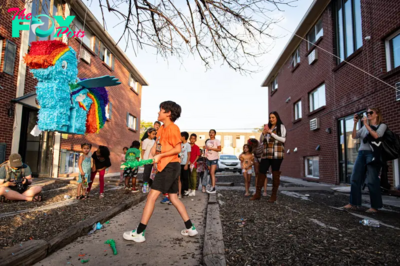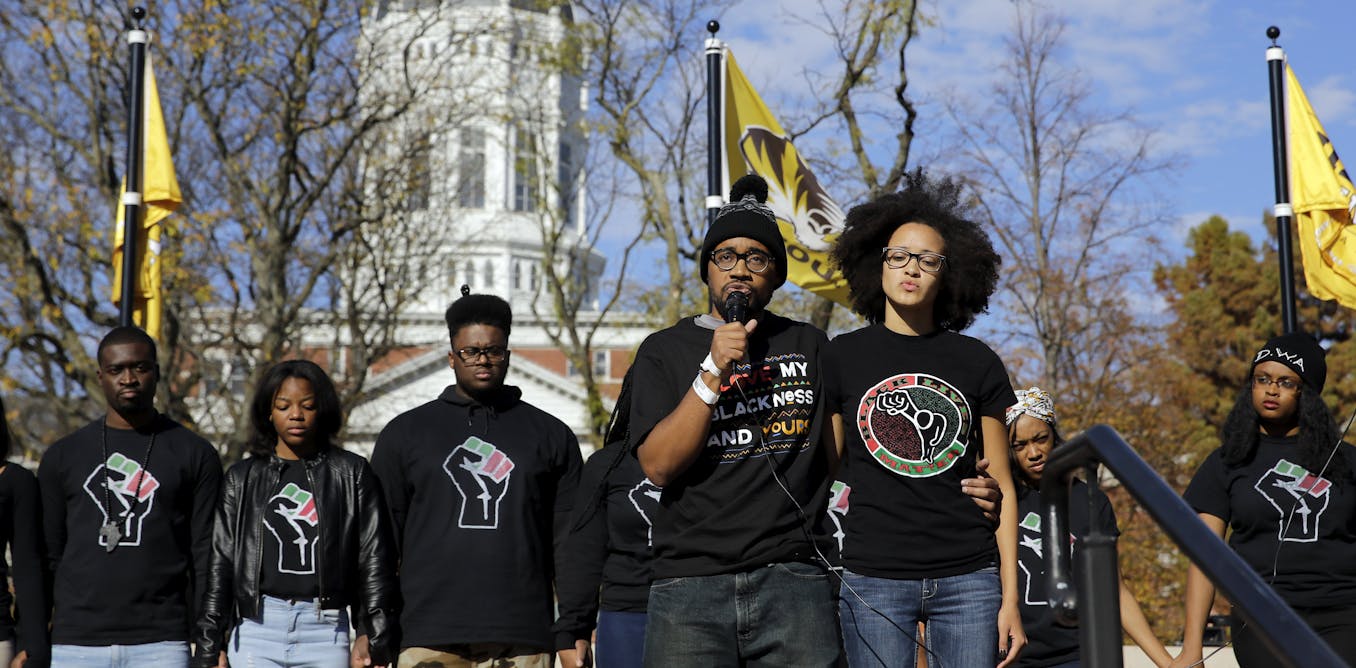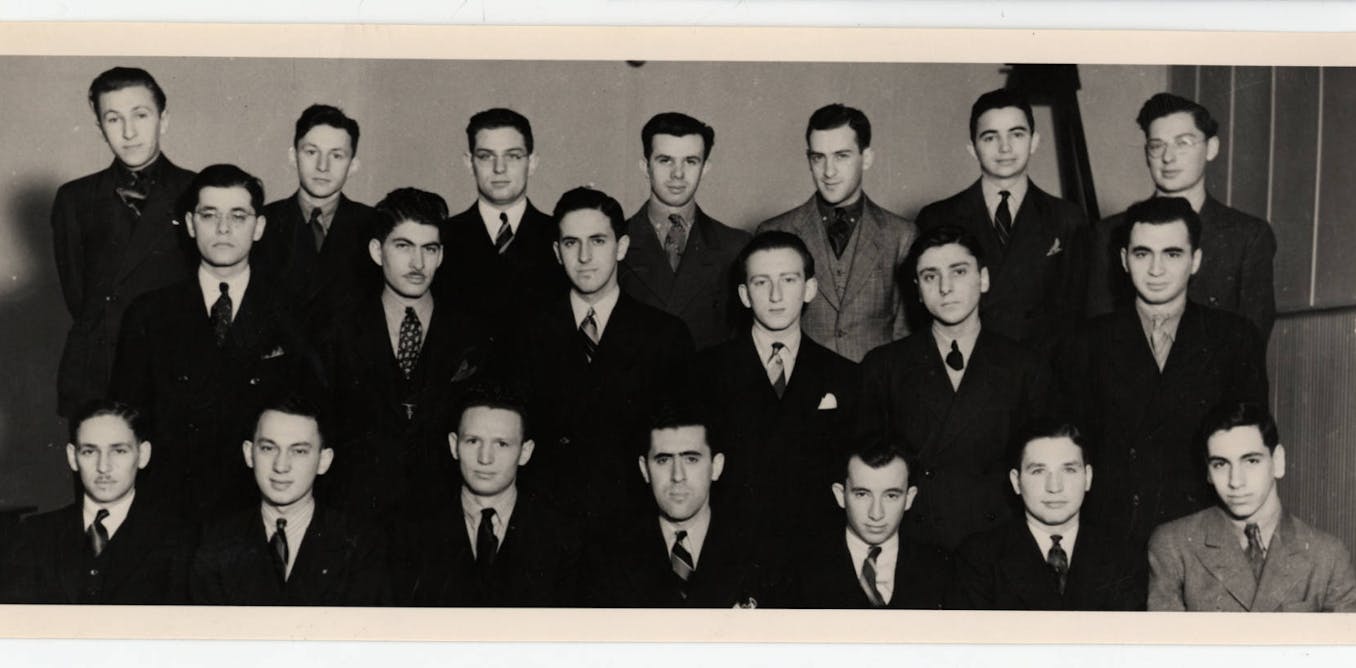Education
Why I turned the ‘Red Dead Redemption II’ video game into a history class on America’s violent past

Uncommon Courses is an occasional series from The Conversation U.S. highlighting unconventional approaches to teaching.
Title of course:
Red Dead’s History: Exploring America’s Violent Past Through the Hit Video Game
What prompted the idea for the course?
This course was born during the COVID-19 pandemic. Confronting the lockdowns of 2020 and uncertain months spent at home, I rekindled a high school hobby that I had neglected for two decades – video gaming.
One of the first Games I picked up was “Red Dead Redemption II,” set in a fictionalized America of 1899. The Game follows the Van der Linde gang, a diverse crew of idealistic outlaws, as they flee authority in an increasingly ordered and hierarchical world. Since its 2018 release, the Game has sold more than 64 million copies, making it the seventh on the list of all-time bestselling video Games – and the only historically themed one on the list.
While video games had been a mindless pastime in high school, this time around I was playing as a professor who specialized in U.S. history since the Civil War. And though that made me a far more critical gamer, I was also genuinely surprised at how often RDRII – as it is often called – alluded to major topics that historians have spent generations debating.
These topics include corporate capitalism, settler colonialism, women’s suffrage and the inequalities of race in an era that Mark Twain had called the “Gilded Age” – a period where the dazzling wealth of a small handful sharply contrasted with the misery of common people. These weighty topics were often on the game’s sidelines, rather than at center stage – but they were present nevertheless.
It wasn’t long into my playthrough that an epiphany struck me. Given how wildly popular this game was with college-age Americans, why not try teaching a serious history course that used the fictional content of the games as a springboard to jump into some of the thorniest dilemmas of the American past?
The experiment proved a success. The course was wildly popular with students and also garnered wide media coverage for its unusual approach to teaching with pop culture.
Encouraged by this response, I’ve now adapted the course into a book for both gamers and history buffs around the world, titled “Red Dead’s History: A Video Game, An Obsession, and America’s Violent Past,” set to be released in August 2024. An extra bonus is that the audiobook version will be narrated by Roger Clark, who played RDRII’s protagonist.
What does the course explore?
Given the centrality of violence to the video game, the course seeks to understand what really spurred bloodshed in the United States between 1865 and 1920.
In RDRII, gunfire is usually sparked by personal grudges, robberies or the overconsumption of alcohol. But in Gilded Age America, it wasn’t so simple. Instead, broader social problems were the primary catalyst of violence. First, Americans fought over the emerging regime of corporate capitalism. Should new businesses like U.S. Steel and the Union Pacific Railroad, who wielded never-before-seen power and influence, dominate workers and consumers alike? Many resisted such an idea through protests, strikes and sometimes bloodshed.
Secondly, Americans came to blows over the unfulfilled promises of racial equality that were written into the U.S. Constitution after the Civil War. Especially in the South, where the vast majority of African Americans lived, the formerly enslaved and their descendants demanded inclusion in politics and a chance to progress economically. But many white Southerners resisted such efforts, often using terrorism to push their Black neighbors into subservient positions.
Why is this course relevant now?
American society in the late 19th century was ruptured by inequalities wrought by capitalism and race – and so is ours today. In the wake of Black Lives Matter and Occupy Wall Street, it’s wise that we look back at the long road that brought America to its contemporary dilemmas of racial violence and the gap between rich and poor. A handy way to open that conversation with young Americans is through video games - an industry that has now surged in value to eclipse both music and movies, and which might be the key to reaching this generation’s students, as studies are beginning to show.

What’s a critical lesson from the course?
One key lesson is about the city of New Orleans, fictionalized in RDRII as “Saint Denis.” In the game, the outlaw protagonists trade fire with the city’s blue-coated policemen following a botched bank robbery, leaving bodies in the streets. Few gamers could guess that a similarly bloody firefight with the police riveted the real city in 1900, just a year after the game is set, leaving seven officers dead. Yet here the outlaw was a Black man, Robert Charles, who took a violent stand against police abuse and the emerging system of Jim Crow segregation.
In response to his attacks on the police, white mobs roamed the city and indiscriminately killed Black civilians. Therefore, the explosion of violence in New Orleans was produced not by simple banditry but by one of America’s towering social dilemmas.
What materials does the course feature?
I frequently begin course sessions with a brief video cutscene or gameplay footage from RDRII, before we dive into the actual history that the games represent – or sometimes, misrepresent. For reading, students dive into scholarly monographs such as historian K. Stephen Prince’s “The Ballad of Robert Charles”, on the violent dilemmas of race in New Orleans. They also read a range of original sources, such as cowboy memoirs, train schedules and a Texas newspaper from 1899.
What will the course prepare students to do?
Anyone who has taken my class – or read my new book – will know that the big social problems we are wrestling with today have deep roots, and took their modern shape during the same 1865-1920 period that is memorably captured in RDRII. They’ll also become much more discerning consumers of digital media, and Games in particular; they’ll be better able to assess and critique representations of History on the digital screen.
-

 Education3d ago
Education3d agoColorado schools commit to protecting students ahead of potential mass deportation
-

 Education1w ago
Education1w agoMothers, metaphors and dyslexia: What language reveals about the challenges of a child’s learning disability
-

 Education1w ago
Education1w agoBrain-training games remain unproven, but research shows what sorts of activities do benefit cognitive functioning
-

 Education1w ago
Education1w agoRacism is such a touchy topic that many US educators avoid it – we are college professors who tackled that challenge head on
-

 Education1w ago
Education1w agoHere’s what happens when a school is located near a cannabis dispensary
-

 Education1w ago
Education1w agoHow the Taliban are seeking to reshape Afghanistan’s schools to push their ideology
-

 Education1w ago
Education1w agoState Board of Education keeps pro-charter school bent after Republican wins 8th District race
-

 Education1w ago
Education1w agoDenver Public Schools superintendent proposes closing these schools at the end of the school year





















